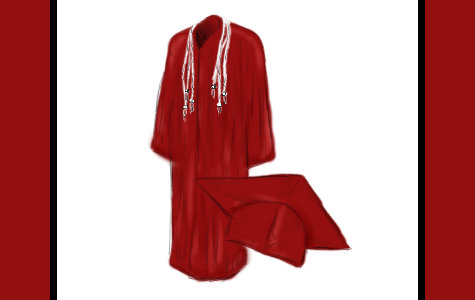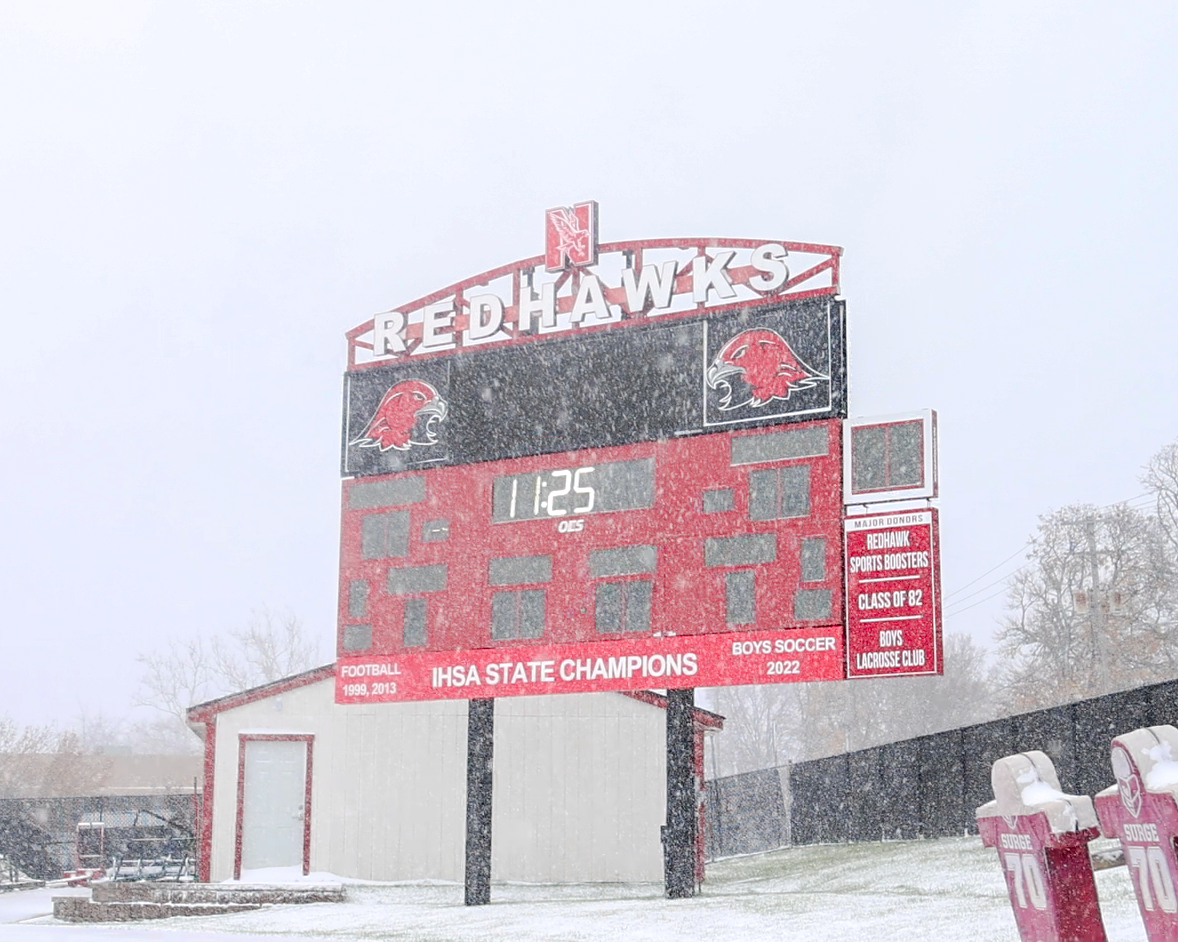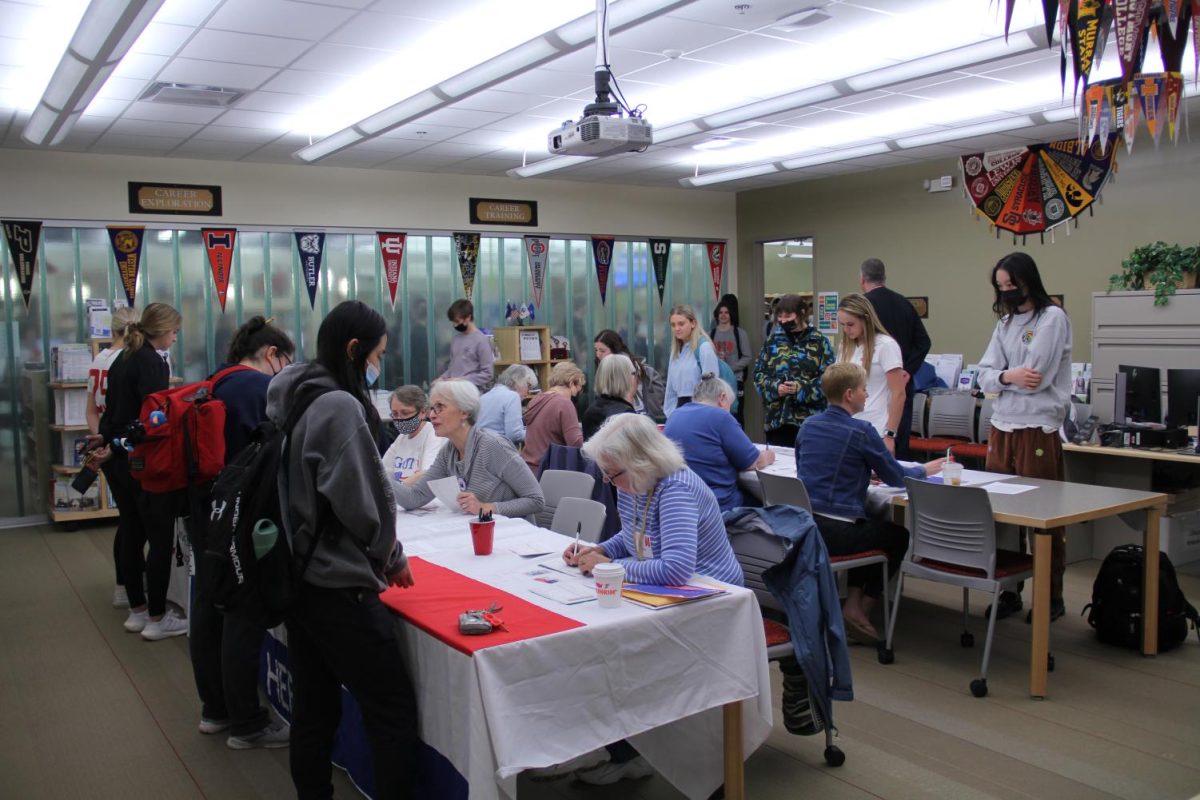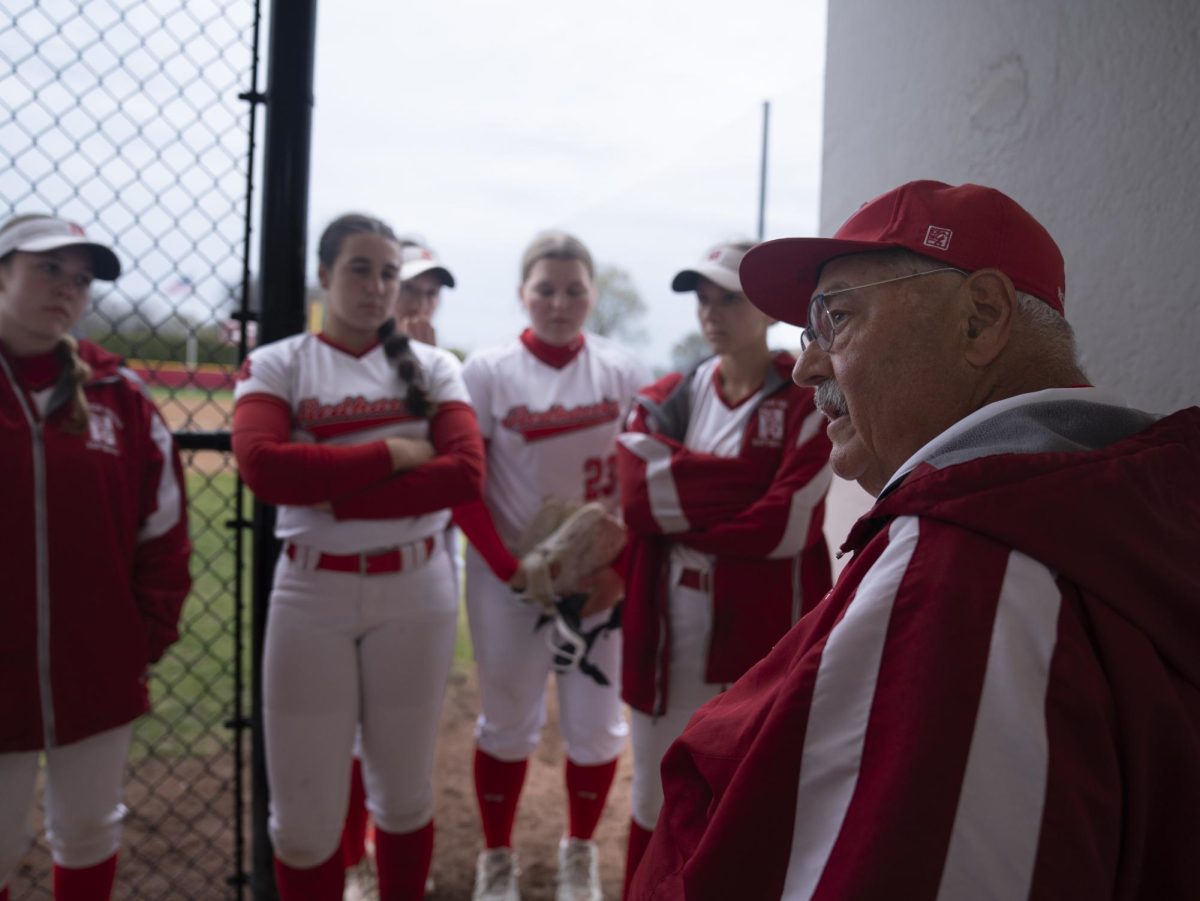CT Exclusive: Graduation cord policy changes will not affect Class of 2017

Art by Sanya Rupani
September 20, 2016
The Class of 2017 will wear all graduation cords that have been worn in years past despite Dean of Student Activities Lynne Nolan’s decision that the tradition would no longer be in practice.
“Someone stepped in and interrupted a continued conversation [about cords],” Nolan said.
The person who stepped in was Superintendent Dan Bridges. District 203 administration realized Nolan’s decision on Sept. 7 when the Central Times contacted the office to request an interview. Wiesbrook cited both poor communication and alignment with North’s graduation ceremony decisions as reasons why the district administration is overruling Nolan’s proposed change for the current graduation year.
The administration is unsure of what will happen for the Class of 2018’s graduation ceremony and Nolan was not included in the decision to halt any changes for this school year’s ceremony.
The process
The first time a change in cords was considered was in spring of 2016. Since she runs the graduation ceremony, Nolan believed the power to change cord procedure was in her domain.
During this time period, Nolan mentioned her plan to Wiesbrook. However, he thought it was just an idea. Wiesbrook’s first realization that the cord procedure was going to actually change came from the Central Times’ article in May.
Nolan called together a committee of most of the Instructional Coordinators (ICs) whose departments recognize students with cords in February 2016. For example, Ignacio Gamboa, the IC for the World and Classical Languages Department was called to the committee because Spanish Honors Society, which previously wore cords at graduation, is housed in his department. Gamboa is also an adviser for Spanish Honors Society.
In this meeting, Gamboa said that the ICs reached a unanimous decision to remove cords.
“It is one of our social emotional goals to be respectful of all students,” Gamboa said. “When one student is adorned with cords and decoration and the other is not, it’s not necessarily good for the social emotional well-being [of the unadorned student].”
Nolan then communicated her finalized decision to parents on Home and School. Additionally, she sent a memo announcing the decision on Feb. 2 to many of the administrators, ICs and leaders of clubs, which stated:
“The following changes will occur in 2017
- Only NHS cords and tassels will be worn at graduation.
- Senior class council and senior [Student Advisory Council] (SAC) members will wear blue stoles.
- No other regalia will be worn by clubs, curricular or co-curricular honor societies.
- No symbols will be listed next to names in the graduation program.”
Nolan said that there was no reaction from either the parents on Home and School nor the ICs. There was no formal means of communicating the new plan to students aside from the Central Times’ article because Nolan felt that there was nothing more to say.
Why
One reason is a philosophical belief shared by Wiesbrook and Nolan. These administrators feel that the graduation ceremony is about congratulating seniors who completed District 203’s graduation requirement. They believe that other achievements can be recognized in other places, like the senior assembly.
Another contributing factor to a decision are the practices of other schools in the DuPage Valley Conference (DVC). Each month, the activities directors from all the DVC schools meet to discuss their schools. Nolan told the Central Times in May that this meeting influenced her decision because she discovered that other than Glenbard North, Central is the only school in the DVC to give out cords for anything other than NHS.
“We chose NHS [to keep] because it is a combination of leadership and community service,” Nolan said. “Students in NHS have gone above and beyond in all areas.”
For reference, current cords given out include: Excellence in Education Award Recipients, National Honors Society, student with high honors for seven semesters, membership in a national foreign language honors society, Quill & Scroll (the international honors society for journalists), the International Thespian Society and the National Speech & Debate Association.
Other schools
District 204 gives out an “Indian Prairie Scholar” cord to students who achieve a certain GPA, according to Dr. Robert McBride, principal of Neuqua Valley High School. Nolan mentioned that District 204 no longer has NHS, so this is their alternative.
In Neuqua’s graduation booklet, college terminology is mentioned for Indian Prairie Scholars: cum laude, magna cum laude and summa cum laude.
The principals for Lake Park High School, Wheaton North High School and Wheaton Warrenville South High School, the other schools in the DVC, did not respond to our inquiry for comment.
The most different practice in cords happens at Naperville North High School.
According to Wiesbrook, North gives out five cords at graduation: an NHS cord, an activity cord (for students who were involved in clubs as upperclassmen), an athletic cord (for students who participated in a varsity sport for two years), a service cord (for students who had over 100 hours of community service during high school) and a “Healthy Huskie” cord (for students who helped with planning a healthy initiative).
Another difference comes in the graduation program. In Central’s, symbols are put next to the names of the students who are wearing one of the 10 possible cords. There is also a list of National Merit Finalists. At North, there are asterisks next to students who have made the honor roll for seven semesters. On a separate sheet, North recognizes those with a 4.25 GPA and higher, National Merit Finalists and Eagle Scouts.
A student perspective
Some students have felt left out of the conversation.
Seniors Evan Young and Julie Park decided to contribute to the conversation prior to knowing about Bridges’ override with a petition.
The petition’s purpose is to “stop the changes [to the graduation cords] from occurring to keep [Central’s] tradition and culture alive. Here at Naperville Central, it has always been accepted to recognize [its] students for their outstanding academic achievements and this should not change. [Young and Park’s] goal is to not have these changes enforced in the 2017 graduation ceremony.”
After one day, over 150 students from all four grade levels signed the petition.
“We want to get a high enough amount [of signatures] to show that the student body cares,” Young said. “We want to show that we have a voice.”
With the reversal of Nolan’s decision, the petition seems to no longer be necessary. Despite this, Nolan hopes to continue hearing students’ voices.
“I hope to understand the student perspective [on cords],” Nolan said. “Also, what do all students feel? Not just the students who receive cords, but all the others without cords.”
For Wiesbrook, he is unsure if student input on any future decisions will be allowed, but he said it is not out of the question. He hopes to take the advice of administration, students or a combination of both in making this decision because he wants to see both points of view.
“I empathize with students…who may have been looking forward to the cords and how they can be frustrated,” Wiesbrook said. “However, I am [also] supportive of the idea of celebrating the [graduation] without highlighting and comparing achievements of students.”
Moving forward
Wiesbrook said that as a result of the differences between Central and North’s graduation practices, the schools will have to discuss district unity in graduation regalia going forward. This conversation will ensue over the coming year, and it is unclear what either high school will have to amend.
“We both like what we’re doing,” Nolan said. “I hope that we’re not forced into doing the same thing [because] we’ve got a great thing going [right now].”
Nolan pointed out that North and Central give out different-sized graduation diplomas and that there has never been a call for district unity on that.
The only thing that is currently clear is that the Class of 2017 at Central will experience the same graduation ceremony as previous years.
“The communication and process has not been ideal and that’s too bad,” Wiesbrook said. “I can understand why some students are frustrated or disappointed with hearing this news.”
At this time, no formal communication has been sent out regarding the reversal of changes to the Class of 2017’s cords, nor the potential changes beginning with the Class of 2018. However, Wiesbrook plans to use Talk203, a phone call, a website announcement and the Central Scenes newsletter to communicate with the Central community.







